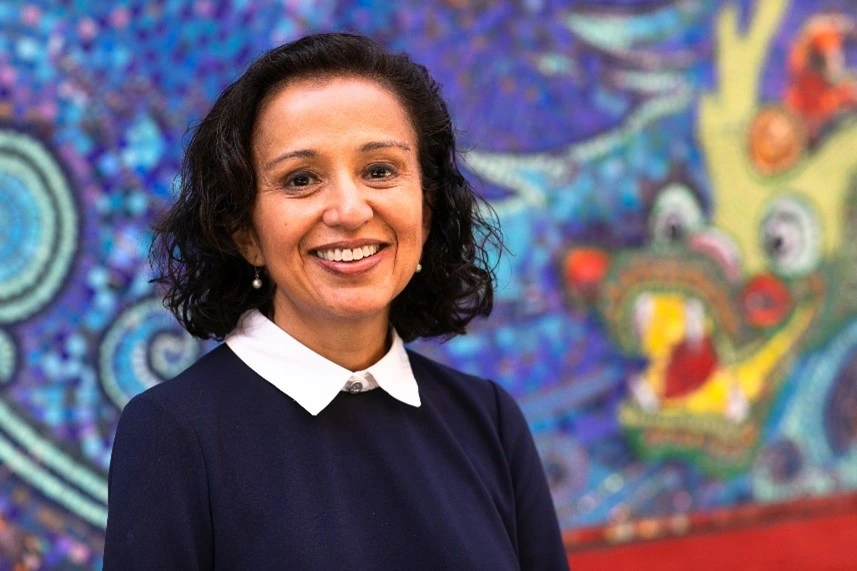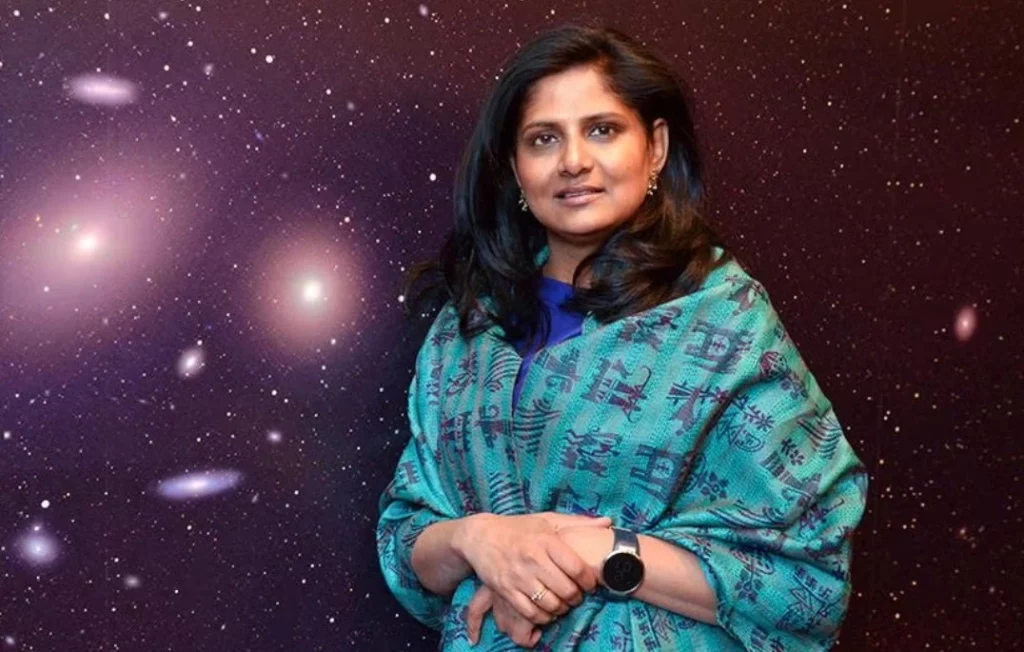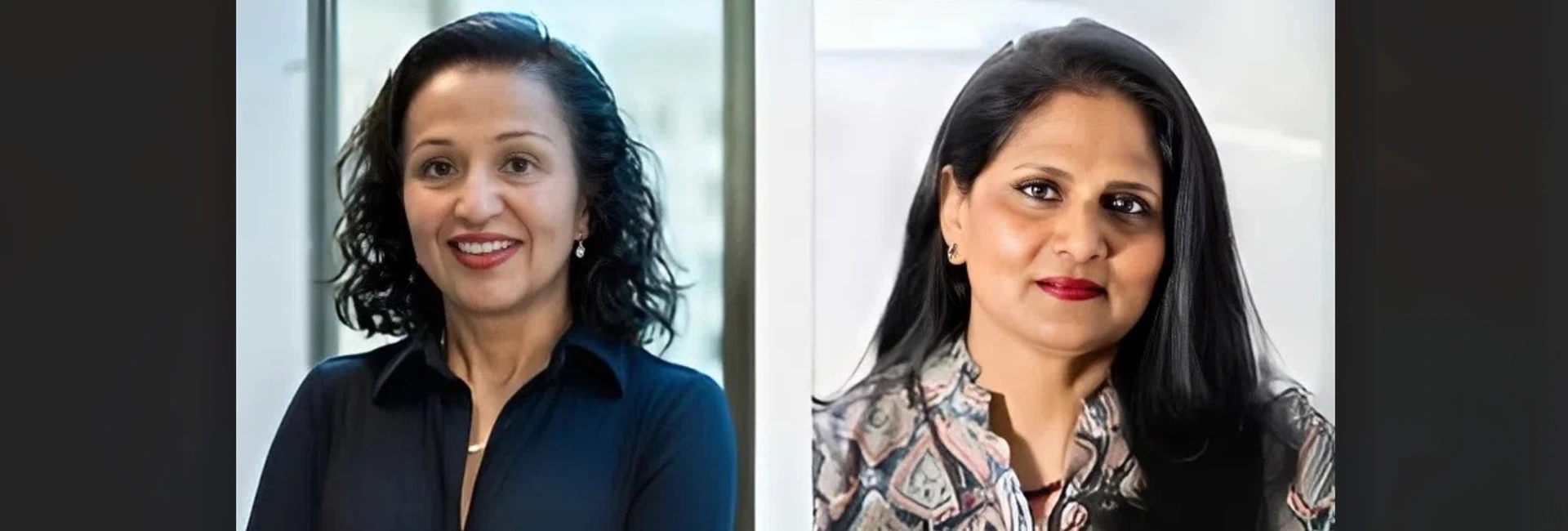(July 24, 2025) Each year on the Fourth of July, while Americans gather to celebrate independence with fireworks and parades, the Carnegie Corporation of New York launches a quieter but no less dazzling tradition: its annual list of Great Immigrants. Since 2006, this initiative has spotlighted naturalized citizens whose life stories and leadership have transformed the United States through activism, science, education, and culture.
This year, the Great Immigrants list consists 20 naturalized citizens from 16 countries. Amongst them are two remarkable Indian-born women. They are Manjusha “Manju” Kulkarni, civil rights activist and co-founder of Stop AAPI Hate, and Priyamvada “Priya” Natarajan, Yale astrophysicist and trailblazer in mapping dark matter and black holes. Notably, both women have also been in Time magazine’s 100 Most Influential People list. While Manjusha was part of the list in 2021 for her anti-hate movement work, Priyamvada was named in the 2024 list for her visionary contributions to cosmology.
One speaks for the silenced. The other listens to the universe. Both are reimagining the American story as architects of its future.
The Great Immigrants honour
Established by the Carnegie Corporation of New York, the Great Immigrants award pays homage to its Scottish-born founder steel magnate Andrew Carnegie who used his fortune to fuel education, peace, and public knowledge. The award recognizes naturalized U.S. citizens who embody this legacy through contributions that strengthen American democracy and enrich its cultural ethos.
Honourees are rigorously reviewed for their leadership, public service, and commitment to civic values. Past honourees include public intellectuals, Nobel laureates, social entrepreneurs, and philanthropists. In a climate where immigration is a fiercely debated issue in the United States, this year’s honourees including Manjusha Kulkarni and Priyamvada Natarajan, signal that belonging in America today is as much about voice as it is about vision.

Manjusha Kulkarni
Manjusha Kulkarni: From courtrooms to community
At age 11, Manjusha Kulkarni who was born in India and immigrated to Alabama with her physician parents, was poring over pre-algebra in a hallway outside her mother’s courtroom deposition. Her mother had been denied a hospital position in Alabama because of her immigration status. It was a bitter moment that ultimately led to a landmark class-action victory. Instead of accepting the injustice, her parents fought back by filing a lawsuit. With the help of the Southern Poverty Law Center, they launched a class-action suit not just for her mother but on behalf of other immigrant doctors who were also denied jobs. Eventually, they won, and it forced hospitals in Alabama to open their residency programs to nonwhite immigrant physicians. It was Manjusha’s first brush with injustice, and her first lesson in fighting back.
Yes, we’re doctors and engineers. We’re also dancers and journalists. We deliver your takeout and clean your clothes. We are American.
Manjusha Kulkarni
Now Executive Director of the AAPI Equity Alliance in Los Angeles, Manjusha is a tireless advocate for the 1.6 million Asian Americans and Pacific Islanders in LA County. Her work took national shape in 2020 when she co-founded Stop AAPI Hate, a coalition born in the wake of rising anti-Asian sentiment during the COVID-19 pandemic. The coalition’s impact was immediate and urgent. It tracked more than 11,000 hate incidents nationwide, giving visibility to a community too often rendered invisible.
“When we as a nation exclude, incarcerate, and investigate individuals because of their race, religion, and national origin, we betray our values and we cause real harm to our citizens,” Manjusha remarked in her TEDx talk.
Her advocacy is both deeply personal and powerfully systemic. After decades of microaggressions and outright hate, she has turned disappointments into galvanization, transforming fear into policy. Her work has led to legislative wins in California, such as laws to ensure safety in public spaces and equity in service industries. As a member of the Los Angeles Ethics Commission and the California Racial and Identity Profiling Advisory Board, she works to make racial justice not just a slogan, but a standard.
Manjusha Kulkarni’s leadership has been recognized globally: Time 100 Most Influential People, Bloomberg 50, Webby Social Movement of the Year, and Forbes 50 Over 50. Yet perhaps her most lasting legacy is a redefinition of what it means to belong.
Priyamvada Natarajan: Mapping the unseen
While Manjusha Kulkarni fights injustice with the tools of the law, Priyamvada Natarajan wields equations to probe the edges of space-time. An astrophysicist at Yale University, Natarajan maps what we cannot see. These are dark matter, black holes, and dark energy, which are the cosmic scaffolding of our universe.

Priyamvada Natarajan
Born in Coimbatore and raised in Delhi, Natarajan grew up in a house filled with books, maps, and intellectual curiosity. Her parents, both professors, nurtured her inquisitive streak. “I was an avid experimenter,” she recalls. “I’d take toys into the garden tank to see what would float. I was always attracted to the unreachable, the untouchable.”
That curiosity took her to MIT for degrees in physics, math, and the history of science, and then to Cambridge for a PhD in astrophysics, where she became the first woman elected to a Title A fellowship in Trinity College’s history. Today, she is not just decoding the cosmos but rewriting who gets to do so.
I want to do my part to level the playing field so that the next generation has fewer barriers than I did.
Priyamvada Natarajan
Her seminal work in gravitational lensing and black hole growth models has earned her the 2025 Dannie Heineman Prize for Astrophysics, along with fellowships from the Guggenheim Foundation and the American Academy of Arts and Sciences. In 2024, she joined the ranks of Time’s 100 Most Influential People.
“The cosmos offers me an escape. One benefit of being an astrophysicist dealing with vast scales and timescales is that I default to a long cosmic view,” she remarked. Natarajan is also a gifted communicator, committed to demystifying science. Her book Mapping the Heavens has been praised for its clarity and intellectual sweep. She argues that science is a human endeavour, full of rivalries, wonder, and creative fire, and that its methods must be made transparent if the public is to trust its conclusions.
Priyamvada’s advocacy extends into her own field. She has pushed for double-blind proposal reviews to reduce bias, chaired the Women’s Faculty Forum at Yale, and spoken out about the marginalization women of colour face in academia.
Parallel journeys: advocacy on earth, inquiry in the stars
Manjusha Kulkarni and Priyamvada Natarajan work in vastly different domains, but their journeys are similar in many ways. Both began in households shaped by education and ethics. Both migrated to the U.S. in search of opportunity. And both have faced, resisted, and transformed the systems that tried to limit them.
Where one measures black holes, the other closes equity gaps. Where one maps invisible matter, the other gives voice to silenced communities. And both understand deeply that justice, whether social or cosmic, is a long game, and requires both clarity and courage.
Their selection for the 2025 Great Immigrants honour is poignant in an era when immigration remains a polarizing issue. In Manjusha’s America, the call is to heal and include. In Priyamvada’s universe, the invitation is to imagine and inquire. Together, they offer a blueprint for belonging which is a rigorous process, and deeply human requirement.
Legacy and the long view
Carnegie’s Great Immigrants Award is a reminder that the American experiment has always been built by those who came from elsewhere. That borders do not define brilliance. And that identity, in its richest form, is not binary but layered.
Manjusha Kulkarni and Priya Natarajan embody this truth. The two immigrant women now shape national conversations. They have faced exclusion and risen not just in spite of it, but because they knew better futures were possible. They have built movements and maps, alliances and academic theories.
Their stories remind us that belonging is not granted, rather claimed. And that sometimes, changing the world begins with seeing it clearly, whether through a telescope or a courtroom.
ALSO READ: Jay Chaudhry: America’s richest Indian immigrant as India tops the U.S. billionaire immigrant list



